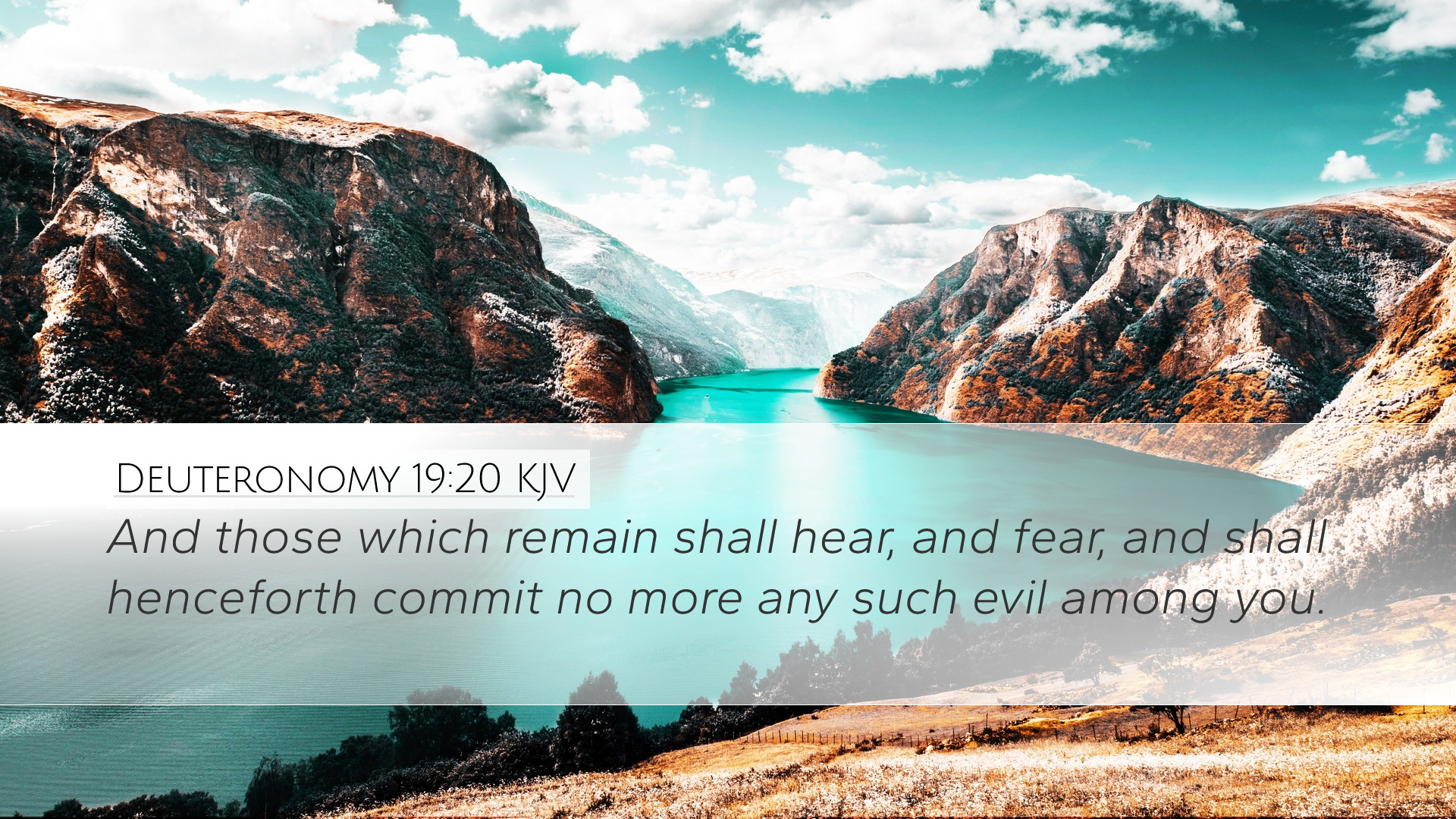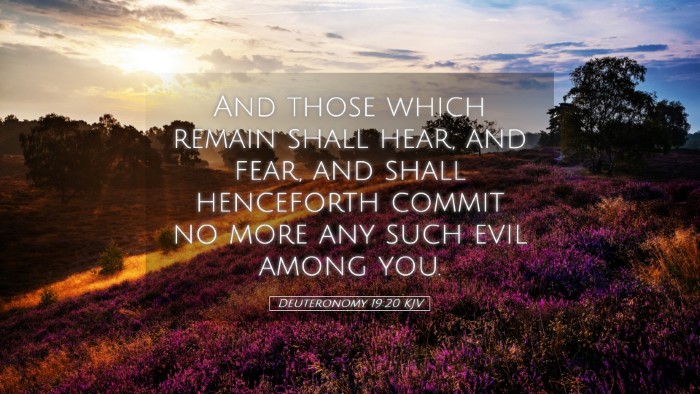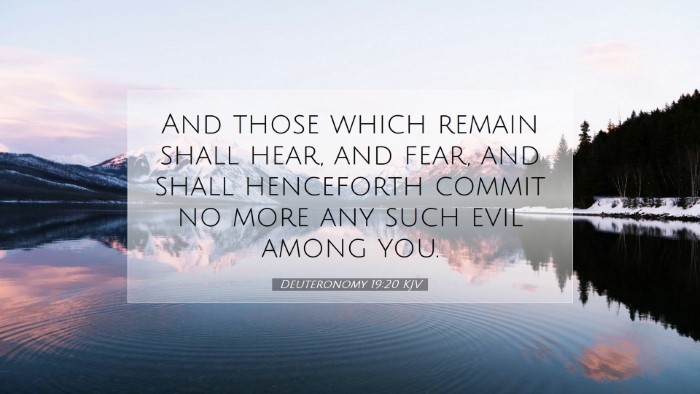Commentary on Deuteronomy 19:20
Verse Reference: Deuteronomy 19:20 - "And those which remain shall hear, and fear, and henceforth they shall not again commit any such evil among you."
Introduction
This verse is part of a legislative framework in Deuteronomy, which serves to guide the people of Israel in moral and judicial matters. It emphasizes the importance of maintaining justice within the community while instilling a sense of fear and reverence for God's law. Throughout biblical commentary, this verse is seen as foundational in addressing how sins and transgressions affect the community at large.
Contextual Background
The preceding verses in Deuteronomy 19 discuss cities of refuge and the provision of law for those who may commit unintentional manslaughter. The function of these laws is to safeguard innocent life while providing a just process for dealing with sin and wrongdoing.
Insights from Public Domain Commentaries
Matthew Henry's Commentary
Matthew Henry emphasizes the community aspect of sin and justice. He notes that public acknowledgement of wrongdoings serves not only as a form of discipline but also as a deterrent against future sins. According to Henry, when the community hears of these events and recognizes the justice served, it has the dual purpose of maintaining order and promoting a collective awareness of righteousness.
Henry further elaborates that the public nature of justice is intended to evoke a fear of transgressing God's laws. Such fear is not one that leads to despair, but rather a reverence for God's holiness, which should compel individuals to adhere to His commandments.
Albert Barnes' Commentary
Albert Barnes provides a practical interpretation of this verse by discussing its implications on fear and accountability within the community. He suggests that the law was designed to remind the Israelites of the gravity of their actions and the consequences that follow.
Barnes notes that the phrase "those which remain shall hear" indicates the necessity of communal involvement in the judicial process. By witnessing the outcome of such cases, the community is led to a more profound respect for the law. This fear leads to a transformative effect, hence reducing the occurrence of similar transgressions in the future.
Adam Clarke's Commentary
Adam Clarke provides a nuanced understanding of the term "fear" in this context. He aligns it with the concept of wisdom from Proverbs, where fear of the Lord is seen as the beginning of wisdom. Clarke suggests that the fear mentioned here should translate into a conscious and deliberate adherence to God's law, converting fear into action that aligns with righteousness.
Clarke also highlights the importance of community testimony as a mechanism for social justice. The act of hearing and witnessing serves not merely as spectators but as participants in God's covenantal community, fostering a culture of accountability and ethical behavior.
Theological Implications
This verse illustrates profound theological principles about sin, justice, and communal responsibility. The requirement of public acknowledgment of sin serves as a reminder of the communal nature of sin itself. The implications are far-reaching, affecting both individual and corporate identities as God's chosen people.
Community and Accountability
The emphasis on community as a witness to the judgment against wrongdoing highlights the interconnectedness of individuals within the body of Israel. When one sins, it is not merely an individual matter but one that affects the community's standing before God. This resonates in the New Testament, where the church is called to bear one another’s burdens.
Fear and Reverence
Fear of God, as articulated in this passage, propels individuals toward a lifestyle that honors divine statutes. This does not imply fear in a paralyzing sense but rather a healthy reverence that leads to obedience. The consistent theme of fearing the Lord as the means to wisdom and understanding is pivotal to both Old and New Testament teachings.
Practical Applications
- Preaching and Teaching: This verse can inform sermons and Bible studies that explore the nature of sin and the importance of accountability in the life of the church.
- Counseling and Accountability Groups: The principle of community witnessing can be applied in church settings, encouraging believers to be mindful of their actions and their impact on the fellowship.
- Discipleship and Mentorship: Utilize the concept of fear as reverence when mentoring others in their spiritual journeys, helping them understand the gravity of their decisions and actions.
Conclusion
Deuteronomy 19:20 encapsulates a significant facet of biblical law that speaks to the balance between justice, community, and the fear of the Lord. By examining the insights offered by commentators like Matthew Henry, Albert Barnes, and Adam Clarke, pastors, students, theologians, and Bible scholars can glean invaluable lessons that enhance not only their understanding of scripture but also practical application in communal and individual conduct.


